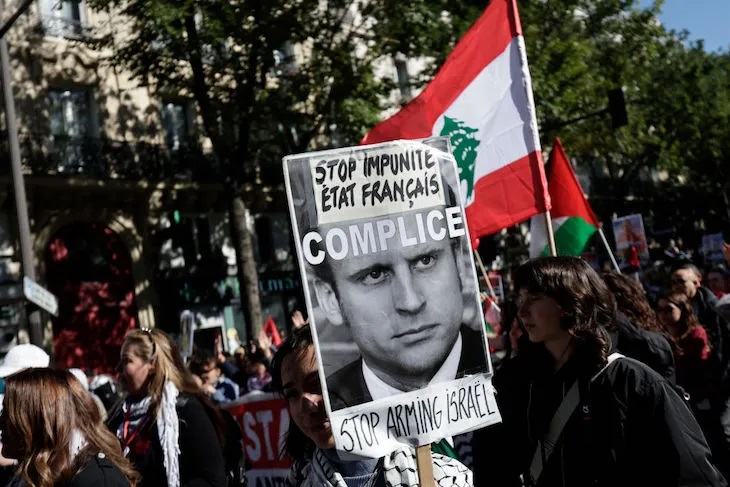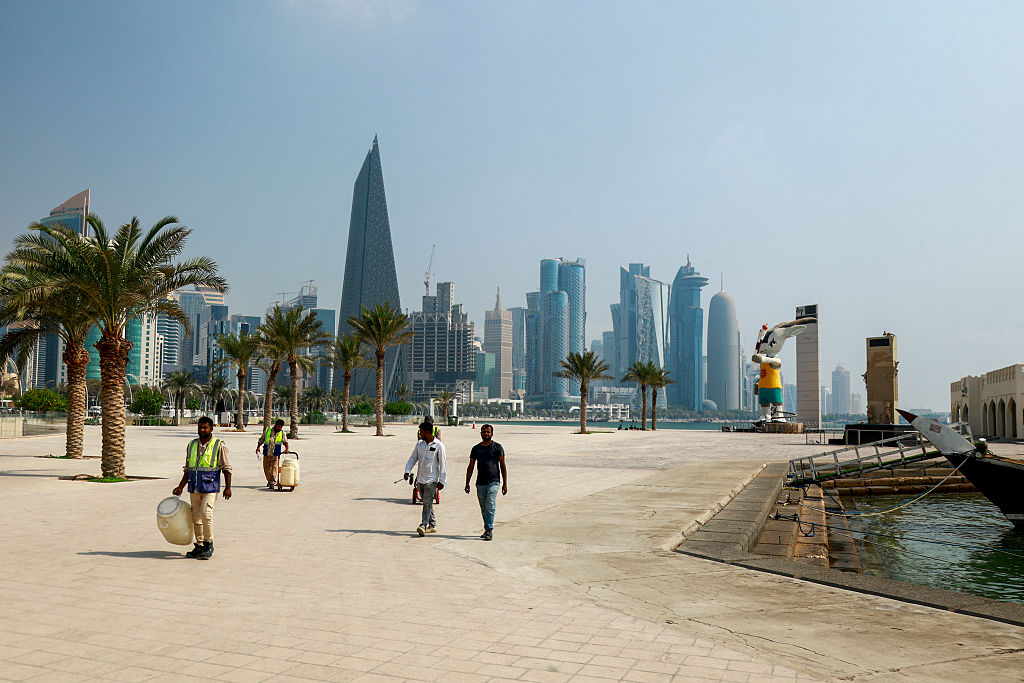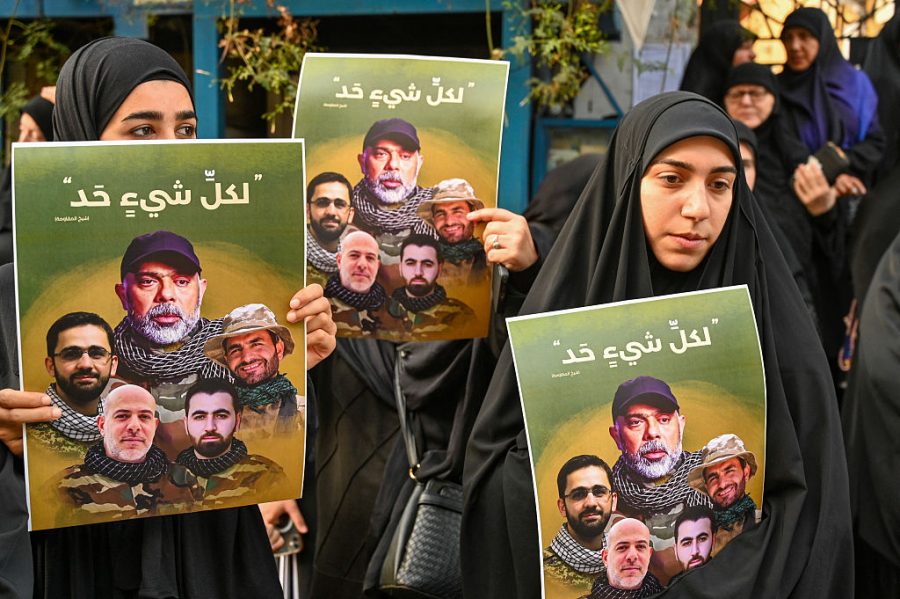Emmanuel Macron has chosen to mark the first anniversary of Hamas’ murderous attack on Israel on October 7 by criticizing their response. In a radio interview, the president of France announced that “the priority today is to return to a political solution, to stop delivering weapons to fight in Gaza.” Israel’s prime minister, Benjamin Netanyahu, called the remarks shameful and said it was a “disgrace” to call for an arms embargo on Israel.
1,600 French Jews have emigrated from France to Israel in the last year
The distinguished French Jewish writer and philosopher, Bernard-Henri Levy, said on Sunday that he was “saddened and shocked” by his president’s comments, particularly given their timing.
In the 365 days since Hamas filmed themselves raping, torturing and killing 1,200 Jews, including forty-two French citizens, the response of France has been guided by fear. Macron admitted as much less than a fortnight later. “If we manage this situation badly, it can be an element of division,” he said on October 19, discussing the situation in Gaza with some young people. “We are all French, we must not import this conflict.”
The president then pointed out that France has the largest Jewish community in Europe, “and we also have many young people of the Muslim faith.” What Macron didn’t say was that France’s Jewish population is approximately 500,000, while there are upwards of six million Muslims.
Macron knows that France is no stranger to witnessing the fallout from conflicts in the Middle East. There were large-scale demonstrations in Paris in 2006, when Israel and Hezbollah fought each other in what was known as the “July War.” On that occasion, several thousand people marched in the French capital, carrying photos of Hezbollah leader Hassan Nasrallah and waving placards on which were slogans such as “Israel, the true Nazi face” and “Zionist barbarism, Nazi barbarism.”
In 2014, anti-Israeli demonstrations in Paris turned violent. Several policemen were injured and, in one Jewish suburb, a synagogue and a Jewish business premise were firebombed as protestors ran riot in response to fighting in Gaza.
This year, antisemitic attacks in France have soared by nearly 200 percent; among the crimes committed were attempts to burn down two synagogues, and the rape of a twelve-year-old girl in a Paris suburb.
An estimated 1,600 French Jews have emigrated from France to Israel in the last year, an exodus that has been underway ever since an Islamist shot dead three Jewish children in Toulouse in 2012.
They not only feel threatened physically but also abandoned ideologically by much of the political class, particularly Macron. As Bernard-Henri Levy said on Sunday: contrast his attitude towards Israel and his belligerent support of Ukraine after they were invaded by Russia.
Last November, Macron did not participate in a march against antisemitism in Paris, an absence that was criticized by many, including the Representative Council of French Jewish Institutions. Macron responded by saying his “role is rather to build the unity of the country.” The Council have also condemned his latest comments, accusing him of “playing the game of Hamas and Hezbollah.”
What terrifies Macron is what has frightened his predecessors in the Elysee: the prospect of an uprising in the banlieues
What terrifies Macron is what has frightened his predecessors in the Elysee: the prospect of an uprising in the banlieues. It happened in the autumn of 2005, after the police fired a tear gas canister close to a mosque during a disturbance in northern Paris; it happened in 2014 during fighting in Gaza; and it happened in June 2023 after a French-Algerian was shot as he drove his stolen car through a police checkpoint.
The rioting that ensued was nationwide and lasted for several days; reportedly, the violence only came to an end when the North African drug cartels who control many of the inner cities in France intervened. The disorder was fun while it lasted but it was beginning to be bad for their business.
These are the lost territories of France, a term first coined in 2002 by the historian Georges Bensoussan in his book of that title. He described the emergence of a parallel society where antisemitism was rife and French society was despised.
Bensoussan was scathing of Macron’s absence from the march against antisemitism last November, contrasting to it the presence of Francois Mitterrand at a similar rally in 1990. The then president of France showed his solidarity with the country’s Jews after the desecration of a number of Jewish graves. Those held responsible for the profanation were far-right extremists linked to Jean-Marie Le Pen’s Rassemblement National.
Antisemitism in France comes now from another source, a poisonous alliance between Islamists and the far-left. A poll earlier this year revealed that 92 percent of French Jews believe La France Insoumise are antisemitic. This didn’t prevent Macron calling on people to vote for them in the recent parliamentary elections as a means of defeating Marine Le Pen.
The reality in France today is that much of the country’s policy, at home and abroad, is influenced by a fear of the banlieues. It’s a question of keeping the peace, whatever the cost. Better to anger Israel than enrage the inner cities.
This article was originally published on The Spectator’s UK website.

























